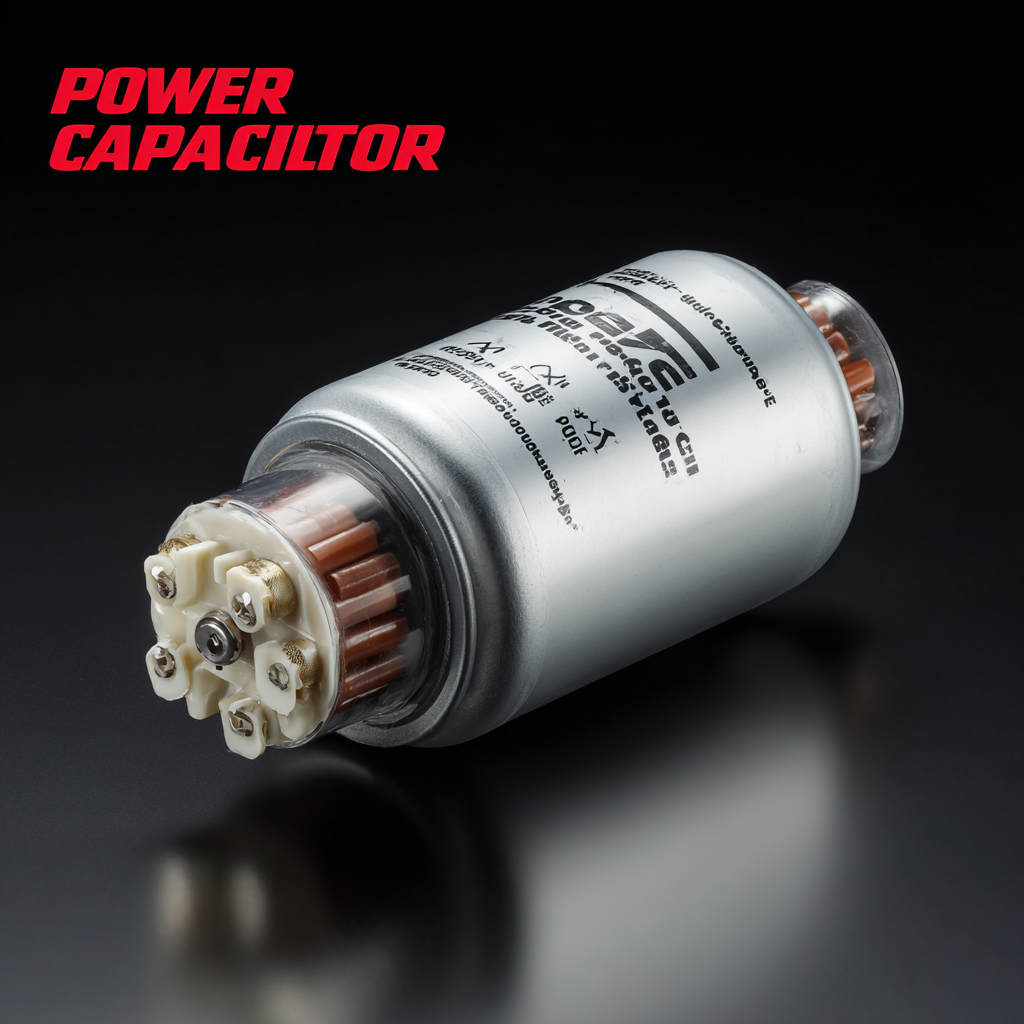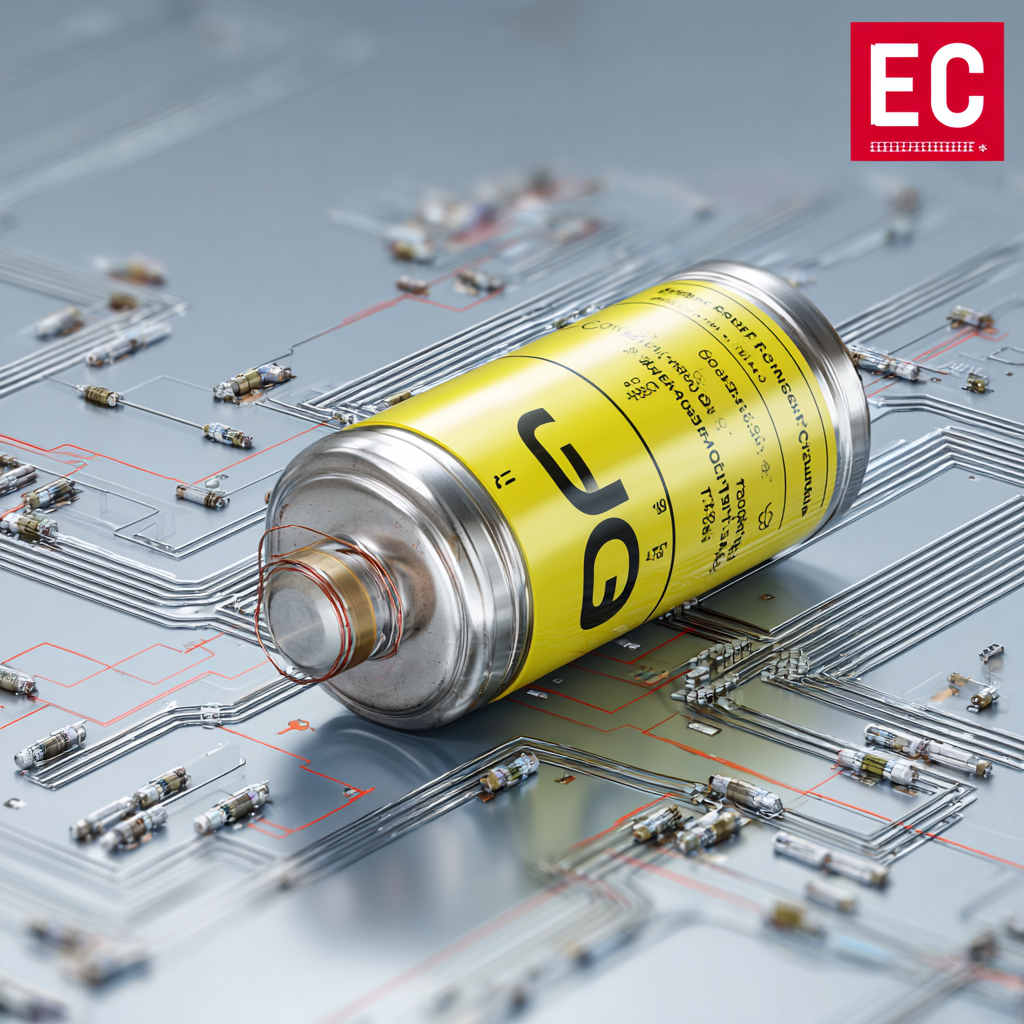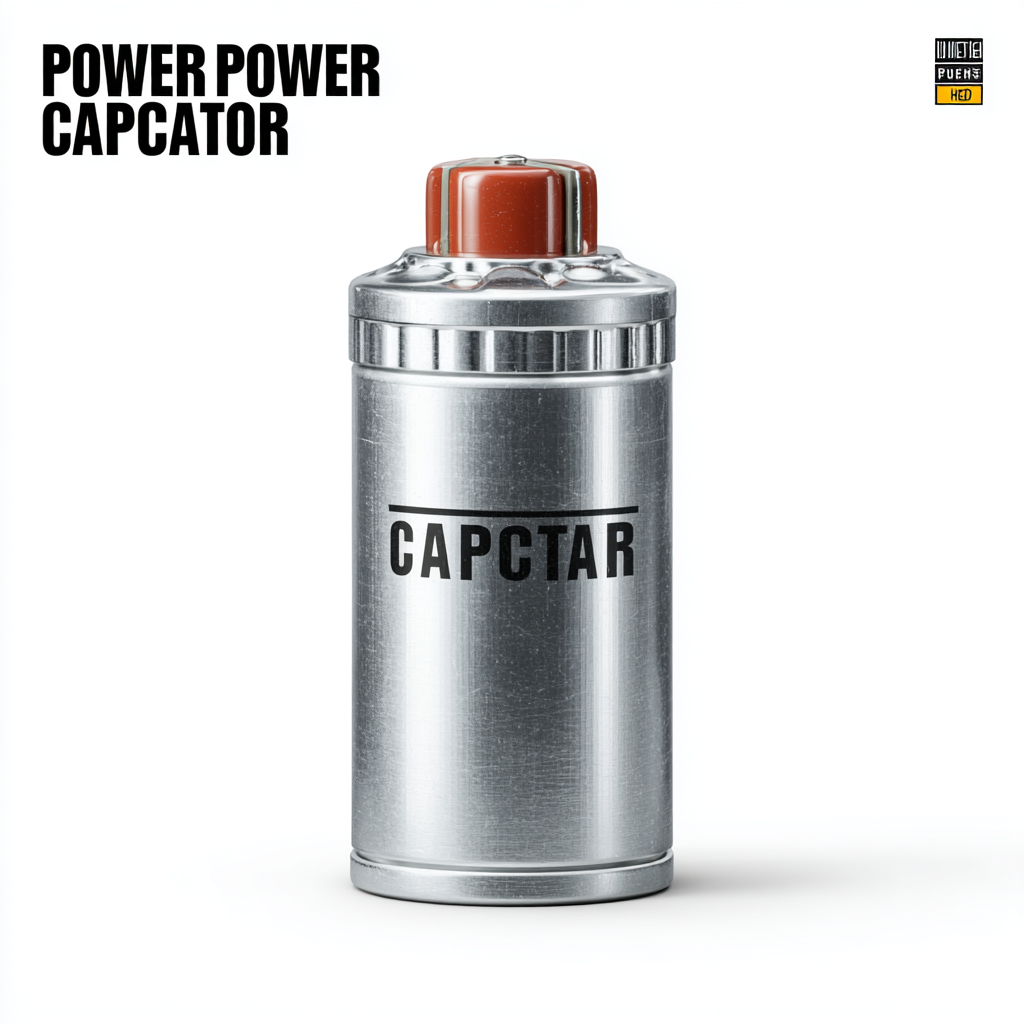10 Best Power Capacitor Solutions for Elevating Energy Efficiency in 2023
In the quest for enhanced energy efficiency, Power Capacitors have emerged as crucial components in modern electrical systems. According to a recent market analysis by Grand View Research, the global power capacitor market is projected to reach USD 3.84 billion by 2025, growing at a CAGR of 5.9%. This significant growth is driven by increasing demand for energy-efficient solutions across various sectors, from renewable energy to industrial applications. Choosing the right manufacturer is vital for ensuring the reliability and performance of these capacitors, as subpar products can lead to energy losses and increased operational costs. As businesses seek to optimize their energy consumption and reduce environmental impact, understanding the best Power Capacitor solutions available in 2023 becomes essential. This blog will explore the top 10 Power Capacitor solutions that can elevate energy efficiency, providing insights into key factors to consider when selecting a quality manufacturer.

Advancements in Power Capacitor Technology: Key Trends for 2023
As we dive into 2023, the realm of power capacitor technology is witnessing significant advancements that promise to elevate energy efficiency across various industries. One key trend is the integration of smart capacitors equipped with IoT capabilities. These smart devices monitor and optimize power consumption in real time, allowing for a more responsive energy management system. By analyzing usage patterns and predicting peak demands, smart capacitors not only reduce wastage but also enhance the overall reliability of power supply systems.
Another noteworthy trend is the development of high-performance dielectric materials. Innovations in materials science have led to capacitors that offer increased energy storage density while reducing size and weight. This shift enables more compact designs without sacrificing performance, making them ideal for use in everything from electric vehicles to renewable energy infrastructure. Additionally, the focus on sustainability has spurred the creation of eco-friendly capacitors, which utilize non-toxic materials and reduce environmental impact, aligning with global efforts toward greener technologies. This combination of smart technology and advanced materials positions power capacitors at the forefront of the energy efficiency revolution in 2023.

Impact of Power Capacitors on Energy Efficiency: Industry Insights and Data
Power capacitors play a crucial role in enhancing energy efficiency across various industries. By minimizing reactive power losses and stabilizing voltage levels, these components ensure that electrical systems operate at optimal performance. Their impact is particularly significant in industries reliant on heavy machinery, where every increment of energy efficiency can lead to substantial cost savings and reduced environmental impact. Recent data indicates that incorporating power capacitors can improve energy efficiency by up to 30%, showcasing their importance in modern electrical engineering.
The growing focus on energy sustainability is driving the adoption of advanced power capacitor solutions. Innovations such as smart capacitors equipped with IoT technology enable real-time monitoring and dynamic adjustment to energy demands. This adaptability not only fosters energy savings but also contributes to better grid management and reliability. As industries continue to seek ways to comply with stricter energy efficiency regulations, power capacitors are positioned to become essential tools in the pursuit of sustainable energy solutions. Their proven track record and ongoing advancements highlight the vital role they play in transforming energy consumption practices for enhanced operational efficiency.
Top 10 Power Capacitor Manufacturers: A Global Perspective on Quality and Reliability
In the rapidly evolving landscape of energy efficiency, power capacitors play a pivotal role in enhancing electrical performance across various sectors. Among the top manufacturers leading the charge in 2023, companies like Vishay and P Panasonic are renowned for their commitment to quality and reliability. These manufacturers invest heavily in research and development to create capacitors that not only meet rigorous standards but also provide long-lasting performance in high-stakes applications. Their innovative designs and advanced materials significantly contribute to improved energy conservation and reduced operational costs, making them favorites among industries looking to upgrade their systems.

Another key player, Siemens, has made strides in the realm of smart energy solutions by incorporating digital technologies into their capacitor designs. This integration not only enhances efficiency but also allows for real-time monitoring and control, ensuring optimal performance in varying conditions. Globally, these manufacturers are setting benchmarks for excellence in product reliability, which is critical for the sustainability goals of businesses across the board. As energy demands continue to grow, the focus on quality in power capacitor manufacturing remains more important than ever, influencing choices made by consumers and industries worldwide.
Comparing Energy Savings: Power Capacitors vs. Traditional Energy Solutions
In the pursuit of enhancing energy efficiency, the comparison between power capacitors and traditional energy solutions has become increasingly relevant. Power capacitors, known for their ability to store and release electrical energy quickly, play a crucial role in improving the power factor and reducing energy losses in electrical systems. This translates to lower electricity bills and increased overall system performance. Unlike traditional solutions such as resistive loads, which convert energy primarily into heat, power capacitors provide a more sustainable approach by improving the efficiency of energy consumption without unnecessary wastage.
Moreover, the integration of power capacitors can lead to significant savings in operational costs. While traditional energy solutions often involve constant energy draw, capacitors can help mitigate demand charges and reduce peak load requirements by providing reactive power support. Additionally, the longer lifespan of power capacitors compared to conventional methods enhances their value proposition, as they require fewer replacements and maintenance efforts. This combination of enhanced efficiency, reduced costs, and lower environmental impact makes power capacitors a compelling choice for businesses aiming to elevate their energy performance in 2023.
Energy Savings Comparison: Power Capacitors vs. Traditional Energy Solutions in 2023
Case Studies: How Power Capacitors Boost Performance in Various Sectors
In 2023, the integration of power capacitors across various sectors has yielded remarkable results, enhancing energy efficiency and operational performance. A notable case study comes from the manufacturing industry, where the implementation of power capacitors in machinery has reduced reactive power consumption by up to 30%. This not only lowers energy bills but also improves the overall productivity of the production line, showcasing a direct correlation between capacitor use and operational effectiveness.
Another compelling example is found in the renewable energy sector, particularly solar energy farms. Here, power capacitors play a crucial role in energy storage and grid stabilization. By optimizing the charge and discharge cycles, these capacitors help maintain voltage levels, thereby enhancing the reliability of energy supply. This technology ensures that renewable sources like solar power can be seamlessly integrated into the energy grid, highlighting the essential role of power capacitors in promoting sustainable energy solutions. As these case studies illustrate, the adoption of advanced power capacitor solutions is paving the way for a more efficient and reliable energy landscape across multiple industries.
10 Best Power Capacitor Solutions for Elevating Energy Efficiency in 2023
| Application Sector | Power Capacitor Type | Energy Savings (%) | Performance Improvement (%) | Payback Period (Years) |
|---|---|---|---|---|
| Manufacturing | Film Capacitors | 15 | 25 | 3 |
| Commercial Real Estate | Electrolytic Capacitors | 20 | 30 | 4 |
| Renewable Energy | Supercapacitors | 25 | 40 | 5 |
| Data Centers | Tantalum Capacitors | 18 | 35 | 3.5 |
| Transportation | Power Film Capacitors | 22 | 28 | 4.2 |
| Electronics | Ceramic Capacitors | 12 | 20 | 2.5 |
